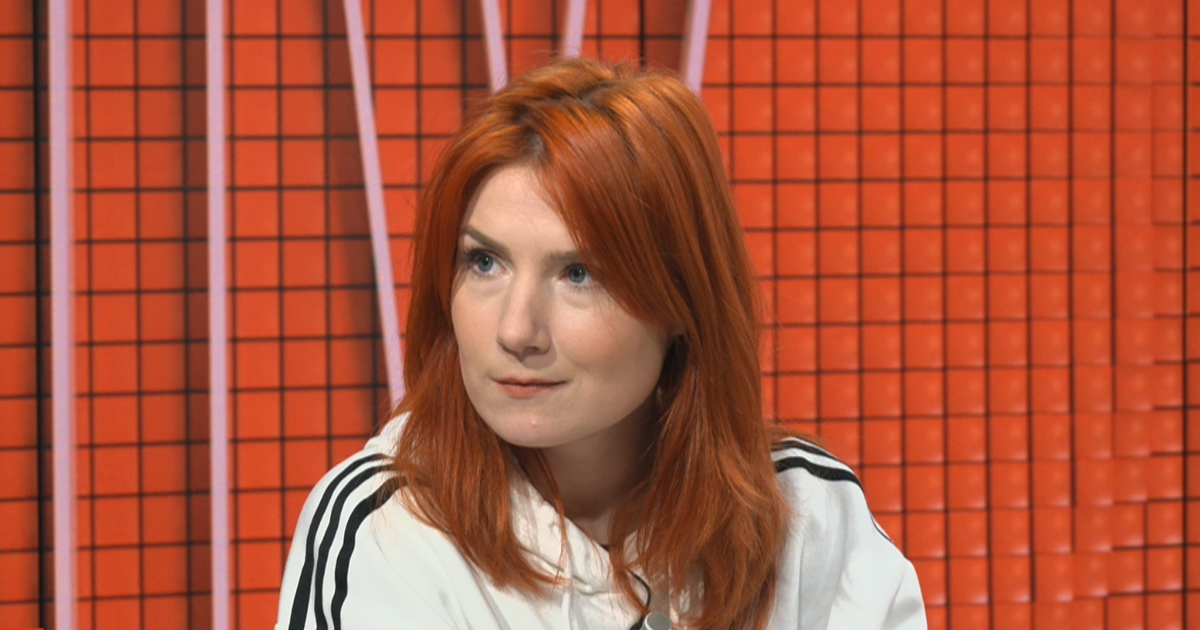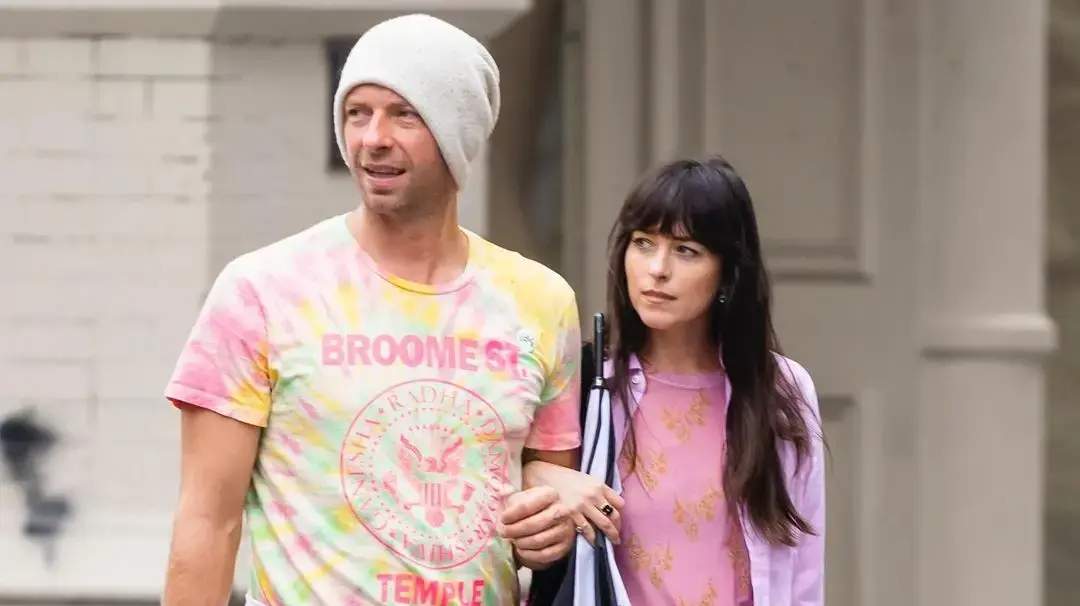He is one of the greats in the music scene: Campino, bourgeois: Andreas Frege, singer from the Toten Hosen.
But the 58-year-old also has other passions, such as England and Liverpool FC.
The man from Düsseldorf has now written a book about it under the title “Hope Street”.
We talked to the artist about his work, love, types of tea - and his image as a rock star.
Campino, front singer of the Toten Hosen, has other passions besides music: England and Liverpool FC, for example.
The singer has now written a book about it under the title "Hope Street".
In it, he tells bluntly about his life.
In "Hope Street" you tell stories from your life across the board. If you had a choice: which moment would you like to relive?
Indeed, one of the craziest nights was when Liverpool beat AC Milan in 2005 in the Champions League.
But how could I prefer this moment to a completely normal family afternoon in my childhood, at home in Mettmann with my siblings.
Such moments would always have priority.
I don't know if I really have to experience that again.
I don't look back that way.
But these moments are definitely some of the best of my life.
How did you get into writing a book in the first place?
It had been clear to me for many years that I would eventually write a book.
When I was a little boy I wrote stories and sold them to my mother for 20 pfennigs.
(Laughs) When I watch myself, I find that my life is always about communication.
Whether writing books, making films or acting in the theater: it all takes place in the same building.
I just changed the floor, so to speak.
There is an immense difference in writing a song text or a book, but I still find the same relationship somewhere.
What is more difficult to write?
For me, the inhibition threshold for a song is greater.
I have already written over 500 songs.
That's why it is difficult for me here to outsmart myself and to surprise myself.
I didn't have this ballast when I was writing my book.
Since I entered a completely new way of playing, I was able to let off steam: On the one hand I told about my passion for Liverpool, on the other hand I dealt with my family history.
That's why it was relatively easy for me to do this.
In the intense phase of writing, there were roughly two days that I cursed the book project.
For comparison: when I record an album with Die Toten Hosen, there are maybe two days during this time when I'm happy: the first day in the studio and the last.
(Laughs) It's just a different pressure because you are measured differently.
So far there was no love song with a happy ending among your songs. In the book you explain this by saying that you used to misunderstand love - and confused it with euphoria. How do you define love today?
Today I am one step further.
In the end we never end up learning.
That's why I believe that we learn what love is until our last breath.
Now I understand that it's not just about a relationship, it's about a lot more.
Aside from two constellations, love is also a question of friendship, a common passage through time.
Mutual trust in not having to pretend or change.
In a relationship, you don't always need to understand the other.
I think that is the crux of the matter.
To say: "I don't understand you, but I still love you."
“I always felt it was unfortunate to have a German first name” - a quote from you. Why didn't you take the chance back then and get an English name for your band, Die Toten Hosen?
Campino is actually a nickname that was more or less given to me.
I actually wanted to call myself "Billy Alibi".
But that didn't work out, nobody called me that.
(Laughs.) In the Düsseldorf punk scene, the English were our role models, but we didn't want to be just a copy of them.
It was immediately clear to us that we wanted to be understood within our environment.
There was no alternative to the German language - and in this context we gave ourselves German names.
Speaking of English, have you ever considered emigrating to England?
I toyed with the idea until I was in my mid-twenties.
That was rather the dream of my youth.
At some point I realized that the Toten Hosen are my life.
And our base is just Düsseldorf.
That's why the topic of emigration was off the table for me at some point.
In the next season you want to be in the stadium at Liverpool FC as often as possible. But your book ends with the words “Just one more season - I promise.” Does that mean your days as a hardcore Liverpool fan are numbered?
They are definitely not.
I cannot imagine that this passion will die in me at some point.
I'll be a Liverpool fan until the last day.
This promise of “only one more season” is therefore more of an allusion to what addicts say: Just one more shot, then it's over.
Just drink this evening and I'll stop.
That you don't take your promises seriously yourself.
That's why I meant this sentence rather sarcastically.
Back to the book. You are currently on a reading tour in Germany. How did it feel to be in front of an audience again after such a long time?
All these evenings are something very special for me at the moment.
Because people feel the fragility of the situation.
14 days ago I performed in Erfurt, that would no longer be possible today.
Since yesterday I have known that my performance in Munich cannot take place, Zurich has been canceled and Vienna probably too.
I had decided for myself to walk the path for as long as I was allowed to.
It would not be correct to abandon the small organizers in particular - who are struggling to survive - now.
I will definitely make up for the evenings that have to be canceled now.
Is politics doing everything right here in your eyes - or do you have other ideas?
New ideas are essential.
The problem for many self-employed people is that they fall through every grid, especially when it comes to the bridging allowances.
The system is not geared towards such cases - it is basically a very distressing matter.
Especially in normal times, it is the self-employed cultural activists who can easily stay afloat and who never get support from the government.
These are all lone fighters who inspire us.
We must therefore have the courage and the insight to recognize that this is an extreme case.
Once these people have given up or moved to other industries, it will be very difficult for the cultural scene to get back on its feet.
You had planned a reading in Munich too. How do you feel about the Bavarian capital in general? In 1999 you confessed your love-hate relationship to FC Bayern in the song “Bayern”.
The song is now 20 years old.
We wrote it back then as fans of Fortuna Düsseldorf, which was bobbing around somewhere in the fourth division.
In the end, it was like the dog that barks at the moon, as a completely hopeless fantasy who would never have the option to play against or for FC Bayern anyway.
I think over time, FCB has correctly assigned this gag.
I have nothing against Bayern and Munich - on the contrary.
Many friends of mine live here.
And Munich is one of my favorite cities in Germany.
We were always welcomed there with open arms, no matter what kind of sporting rivalries there were.
And, thank God, this song has also been forgiven us.
You are now married, have written a book and prefer to drink teas with melodious names. All things that you would probably have found very stuffy in the past. Do you still see yourself as a rock star today?
I've never seen myself as a rock star, I know who I am.
(Laughs) A lot of things in life are a matter of contemplation.
That I am amused about teas and fall in love with them at the same time and have 100 varieties at home - that's typical for me.
It was exactly the same when I made fun of Opel drivers in 1982 with the song “Opel Gang”.
At the same time, I was extremely interested in it and became an enthusiastic Opel fan.
In other words, the song or the idea for it had overtaken me.
It is similar with marriage.
It is very easy to say: whoever gets married is a philistine.
Elizabeth Taylor alone has tied the knot eight times.
I'm more of a philistine when I say: I'll only get married once in a lifetime.
(Laughs.)
The interview was conducted by Franziska Konrad.
Campino:
"Hope Street".
Piper Verlag, Munich, 355 pages;
22 euros.















